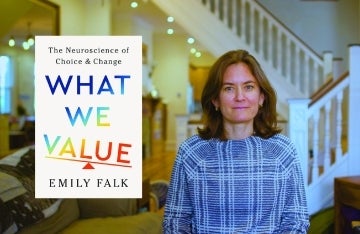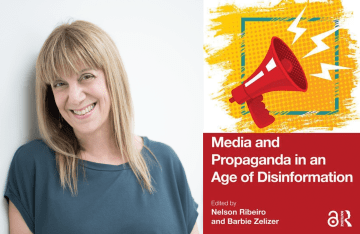Exposing Hypocrisy Can Be Effective in Reducing Collective Blame of Muslims for Individual Acts of Violence
A new study evaluated real-world video clips shared on social media to determine which were most effective.

Photo Credit: Ifrah Akhter / Unsplash
Following the terrorist attacks in Paris in November 2015, Emile Bruneau noticed a pattern: howls from the far right condemning all Muslims for the attack, followed by passionate counterarguments defending the vast majority of Muslims who are blameless. The tactics were all over the map: heartstring-tugging stories of Muslim refugees overcoming adversity, logical statistics detailing the miniscule percentage of Muslims who actually commit violent acts, interviews with stereotype-defying Muslims.
A research scientist who directs the Peace and Conflict Neuroscience Lab at the University of Pennsylvania’s Annenberg School for Communication, Bruneau counted dozens of tactics being used. Which, he wondered, were actually effective? He designed a study to find out.
Bruneau and his collaborators discovered that while most of the approaches people use are not persuasive, one method – namely, exposing hypocrisy – can reduce prejudice, even a month later.
“People tend toward sharing empathy-inducing techniques on social media,” says Bruneau, “because we think that the best way to change someone’s opinion is to pull on their heart strings. However, our research indicates that the best way to change someone’s heart is to change their mind first.”
The researchers, which also include Nour Kteily of Northwestern University and Emily Falk of the Annenberg School at Penn, began by evaluating 60 real-world video clips that had been used on social media to combat collective blame. Based on their knowledge of psychological principles, they narrowed to eight clips and screened them to 2,000 people after first assessing baseline beliefs from non-Muslim Americans about Muslims and their collective responsibility.
The most effective clip at reducing collective blame was an Al Jazeera interview with a Muslim woman who said that blaming all Muslims for a terror attack is like blaming all Christians for the actions of Westboro Baptist Church or the KKK. The video pointed out the hypocrisy, and it worked. Participants who viewed this video were the only ones to report a significant reduction in collective blame of Muslims.
But, Bruneau says, “If you accuse people of hypocrisy — basically using it as a weapon — you’ll probably get a defensive backlash right away.” To see if this was a method that could change minds on a broad scale, researchers then designed a second component to the study: a method to help people recognize their own hypocrisy.
A new group of participants then were asked to read a short bio of American white supremacist and mass murderer Dylan Roof, and asked to report how personally responsible they felt for Roof’s actions, and how responsible they thought all White Americans were for Roof’s actions. Next, the exercise was repeated with passages about white supremacists and mass murderers Anders Breivik and Wage Page.
The activity then transitioned to bios of individual Muslims, and participants were asked how responsible these individuals were for recent terror attacks in Europe committed by a Muslim. Lastly, the exercise asked the crucial question: How responsible should all Muslims be for an individual’s act of terror?
The degree to which participants blamed all Muslims after completing the activity was half that of those who served as the control group for the study. “This activity is very gentle,” he says, “and it allows people to come to a conclusion on their own, without setting off their brain’s threat sensors.”
Bruneau is now testing this technique with advertisements on a major urban train system in the hopes of developing interventions that help reduce intergroup conflict and hatred.
“Although the conventional wisdom is that attitude change is difficult to achieve and even harder to maintain,” says Bruneau, “these interventions suggest that when people are provided with the awareness of their own inconsistencies and the tools to change their minds, they can readily do so.”



